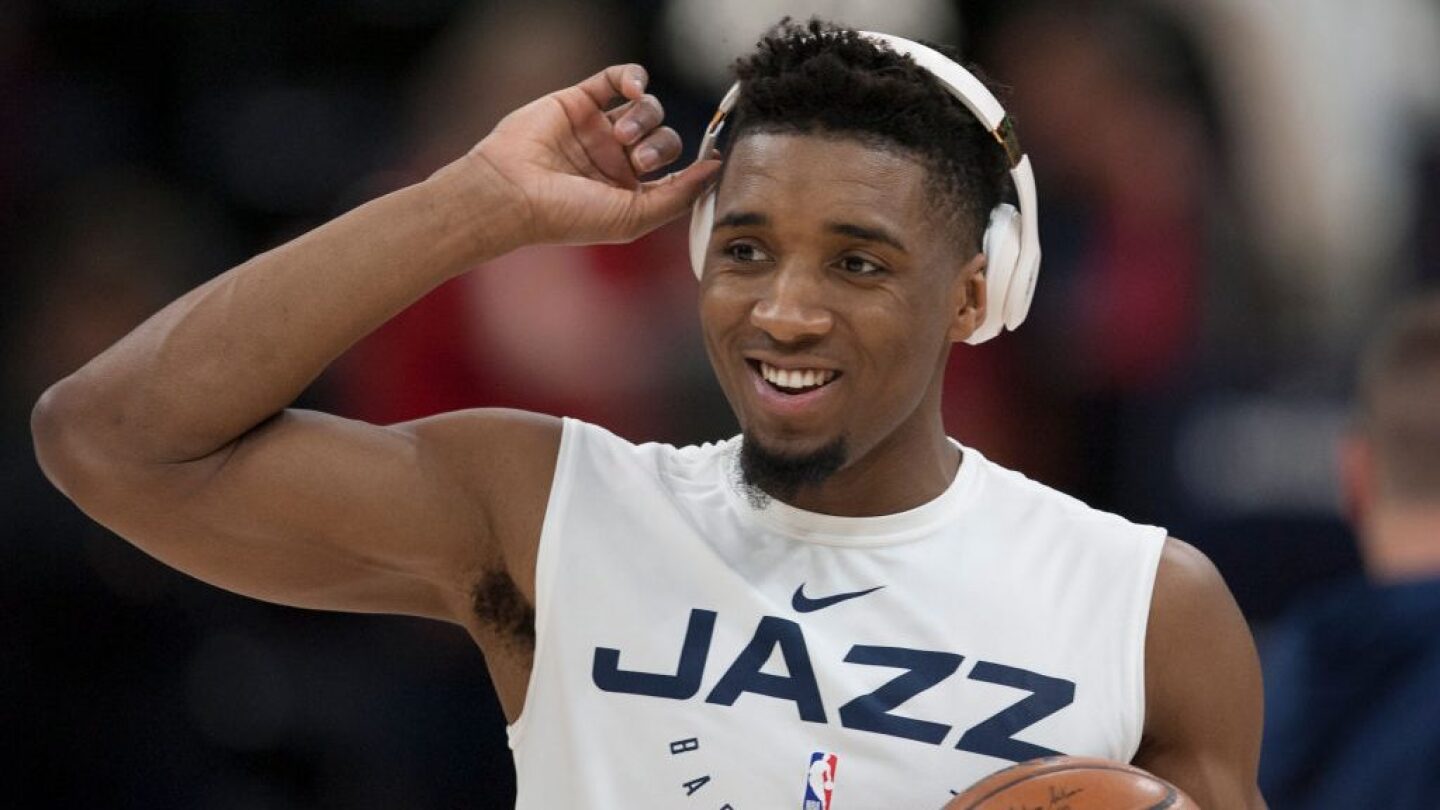Donovan Mitchell quickly won over fans in and outside Utah with his electrifying play. Despite not being an All-Star, he stole the show at All-Star Weekend, charismatically building his platform and winning the dunk contest. He unleashed an insurgent Rookie of the Year campaign. He led the Jazz to playoff-series victory. He signed a lucrative endorsement deal and got a signature shoe.
Donovan Mitchell has made it.
And that makes him uncomfortable.
“I’ve never really come from a position where I’m not the underdog, if that makes sense,” said Mitchell, whose stature rose quickly for a player who initially intended to return to Louisville for his junior season and was still just a mid-first-round pick in 2017. “I haven’t really had that in my life.”
Mitchell is having another fine year, averaging 20.4 points per game. But he doesn’t look quite as sharp as last season, when he established himself as a co-franchise player with Rudy Gobert for the Jazz.
The future in Utah with those two can still be extremely bright. The ascent will be just be bumpier than hoped.
Some of Mitchell’s difficulties are unavoidable. He’s the go-to scorer on a defensive-first team – a tremendous burden.
Of the nine regularly playing guards with usage percentages above 30, only two have their team allow fewer than 105 points per 100 possessions with them on the floor – Mitchell and Russell Westbrook. Relatedly, Mitchell and Westbrook have the lowest true shooting percentages among those nine:
(That’s Zach LaVine barely poking out behind Kemba Walker.)
The Jazz and Thunder have built systems around putting defensive-minded personnel on the floor, positioning players to get back on defense, gumming up spacing and expecting their top guards to produce anyway. It’s a big ask, one that depresses Mitchell’s and Westbrook’s individual efficiencies but works to the betterment of the team.
Westbrook was a seasoned star in his ninth season when Oklahoma City gave him that role following Kevin Durant’s departure. Mitchell got it as a rookie and is continuing with it in his second season.
At times, Mitchell has tried to defer. His teammates urged him to keep shooting. This team was built to feature him, and a couple months of relative struggles don’t change the bigger picture.
Mitchell is the only Jazz starter who can reliably create for himself. Mitchell and Ricky Rubio are the only starters who can reliably create for others. Mitchell and Joe Ingles are the only starters who can reliably space the floor from distance. Utah starts a pair of traditional bigs in Gobert and Derrick Favors. So much falls to Mitchell offensively.
Opponents have adjusted to Mitchell more quickly than he has developed his game. They blitz him more often on pick-and-rolls. They shade toward him more quickly as he drives. They stunt off him more often rather than completely leave him to help.
Ever since Mitchell torched Dwane Casey’s Raptors for 25 points early last season, the coach – now with the Pistons – has emphasized Mitchell in scouting reports.
“There’s certain things we want to live with and certain things we don’t want to give up,” Casey said. “And him sashaying from end of the court to the other, one slot drive, one dribble to the rim – those are the things we’ve got to take away.”
Mitchell isn’t getting to the rim as often as last season, settling for more floaters. His catch-and-shoot 3-point percentage has also fallen from 41% to 30% – concerning because that should be more defense-agnostic.
“The season might not go the way I want it to this year, for me personally,” Mitchell said.
He’s figuring it out as he goes, but not quickly enough to maintain the sky-high expectations set for him entering the year. At least the Jazz (20-21) are winning a reasonable amount amid a tough early schedule that will soften. Team success, Mitchell says, is his priority.
This is a learning season for both Mitchell and Utah about how to best deploy him.
The Jazz will have an opportunity to reconfigure this summer. They could waive Derrick Favors ($16.9 million unguaranteed salary), renounce free agents Rubio, Thabo Sefolosha and Ekpe Udoh and open a projected $31 million in cap space.
Maybe Mitchell just needs more complementary offensive pieces, and that’d be the cash to get them. Or maybe continuing to emphasize defense while riding Mitchell offensively is the right formula.
This season has provided plenty of reason to reel in the Mitchell hype. It has not produced many doubters in him.
“He may have some growing pains,” Casey said. “But it’s there, and you never forget how to swim. He’s going to be a great player in our league for a long time.”










